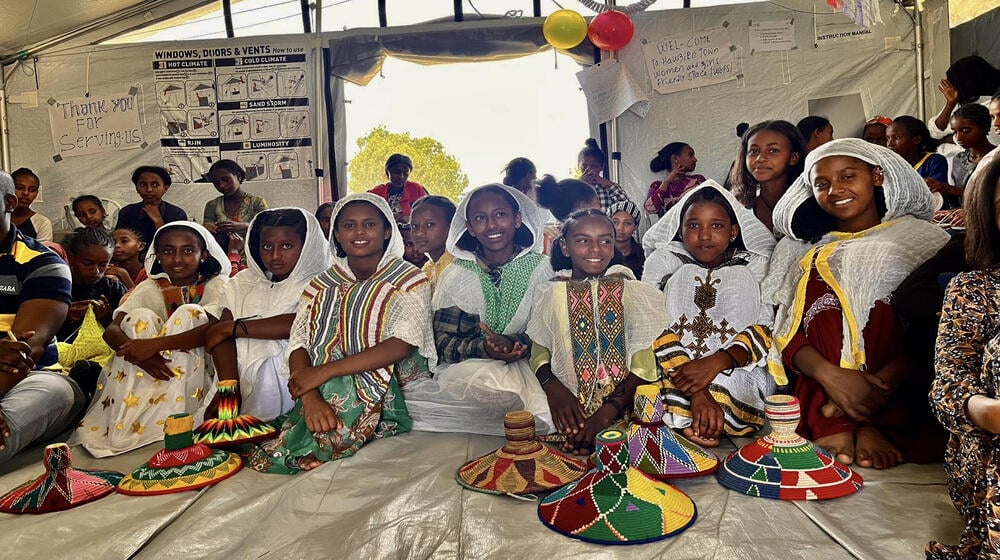TIGRAY REGION, Ethiopia — UNFPA, the United Nations sexual and reproductive health agency, is partnering with Ethiopia’s Ministry of Women and Social Affairs (MoWSA), UNOPS and the World Bank to improve access to gender-based violence prevention and response services for women and girls in Tigray, northern Ethiopia. Under a $15.1 million agreement, UNFPA and partners will expand access to comprehensive medical and psychosocial support services for women and girls deeply affected by two years of conflict in the region, with the goal of helping them rebuild their lives after episodes of devastating violence.
Conflict, violence, drought and flooding have intersected to create a humanitarian crisis in Ethiopia. Millions of people have been displaced in the north of the country and health and social support systems have been decimated. The impact on women and girls has been particularly devastating. According to the 2023 Humanitarian Needs Overview, the number of people needing urgent access to gender-based violence services in conflict-affected districts of the country has increased to 6.7 million in 2023 from 5.8 million in 2023.
“In a country of multiple overlapping crises, the support of the World Bank and UNOPS is crucial to protect and promote women and girls’ rights, including those who have been traumatised by two years of war. By joining forces, UNFPA and the World Bank can use their comparative advantages to respond to their protection needs, and support national development priorities,” said Mr. Koffi Kouame, UNFPA’s Representative in Ethiopia.
The $15.1 million project will be implemented over a two-year period and will aim to expand and strengthen gender-based violence service delivery and drive prevention and behaviour change. It will build on the coordinated response to gender-based violence in Ethiopia, and, under it, policy and research activities will be conducted to improve violence prevention and response services. The project is part of Ethiopia’s partnership with the World Bank, which encompasses a $300 million grant towards response, recovery and resilience in the country’s conflict-affected areas.
Since the launch of the project in November 2022, 5,000 women and girls have already received services at women and girls-friendly spaces, where case workers provide survivor-centred psychosocial support and sexual and reproductive health services. An additional 1,000 women and girls have received medical, psychosocial and legal services at one-stop centres, where survivors of gender-based violence are able to access comprehensive services free of charge, under one roof.
By the end of March 2023, over 30,000 individuals had been reached through gender-based violence awareness sessions and over 2,400 dignity kits containing essential hygiene items had been distributed to women and girls in need. The kits are also an important entry point for protection services.
Across Ethiopia, UNFPA and partners are delivering life-saving reproductive health and protection services. In 2022, in northern Ethiopia, UNFPA supported 26 women and girl-friendly spaces and 10 one-stop centres to respond to the health and protection needs of conflict-affected women and girls. To date, over 100,000 people in conflict-affected areas of northern Ethiopia have been reached through UNFPA-supported psychosocial counselling programmes.


